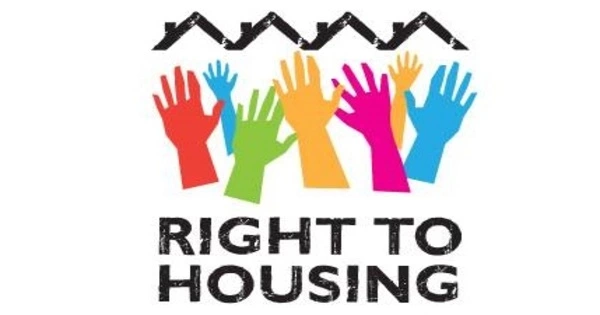The right to adequate housing and shelter (also known as the right to shelter) is an economic, social, and cultural right. Some national constitutions, as well as the Universal Declaration of Human Rights and the International Covenant on Economic, Social, and Cultural Rights, recognize it.
The right to housing is a fundamental human right that guarantees everyone access to safe, secure, habitable, and affordable housing. It implies that no one should be forced to live in substandard conditions or be without shelter. Various international human rights instruments, including the Universal Declaration of Human Rights and the International Covenant on Economic, Social, and Cultural Rights, recognize the right to housing.
The right to adequate housing is recognized as a freestanding right in international human rights law, as evidenced by the UN Committee on Economic, Social, and Cultural Rights’ General Comment on Adequate Housing in 1991. The availability of services, infrastructure, materials, and facilities; legal security of tenure; habitability; accessibility; affordability; location and cultural adequacy are all aspects of the right to housing under the ICESCR.
While the right to housing does not guarantee everyone a free home, it does imply that governments have an obligation to take steps to ensure that adequate housing is available and accessible to all individuals within their jurisdiction. This includes developing and putting in place policies, programs, and legislation to combat homelessness, improve housing conditions, prevent forced evictions, and provide affordable housing options.
The concept of the right to housing is broad and encompasses several elements. These include:
- Availability: Governments should ensure an adequate supply of housing options, taking into account the size, location, and specific needs of the population.
- Accessibility: Housing should be physically accessible to all, including people with disabilities, and located in areas with access to essential services, such as healthcare, education, and transportation.
- Adequacy: Housing should meet certain standards of quality, ensuring it is safe, structurally sound, and provides basic amenities like water, sanitation, and electricity.
- Affordability: Housing should be affordable, meaning it should not impose an excessive financial burden on individuals or families. It should be affordable for a range of income levels, and governments may need to provide subsidies or rental assistance to ensure affordability.
- Security of tenure: People should have legal protection against forced evictions, arbitrary displacement, or homelessness. They should have the right to live in their homes without fear of unlawful or unjust eviction.
Governments, civil society organizations, and communities must work together to realize the right to housing. It entails dealing with underlying issues like poverty, discrimination, and unequal access to resources. Societies can strive to create inclusive and sustainable communities where everyone has a place to call home by recognizing and implementing the right to housing.
















